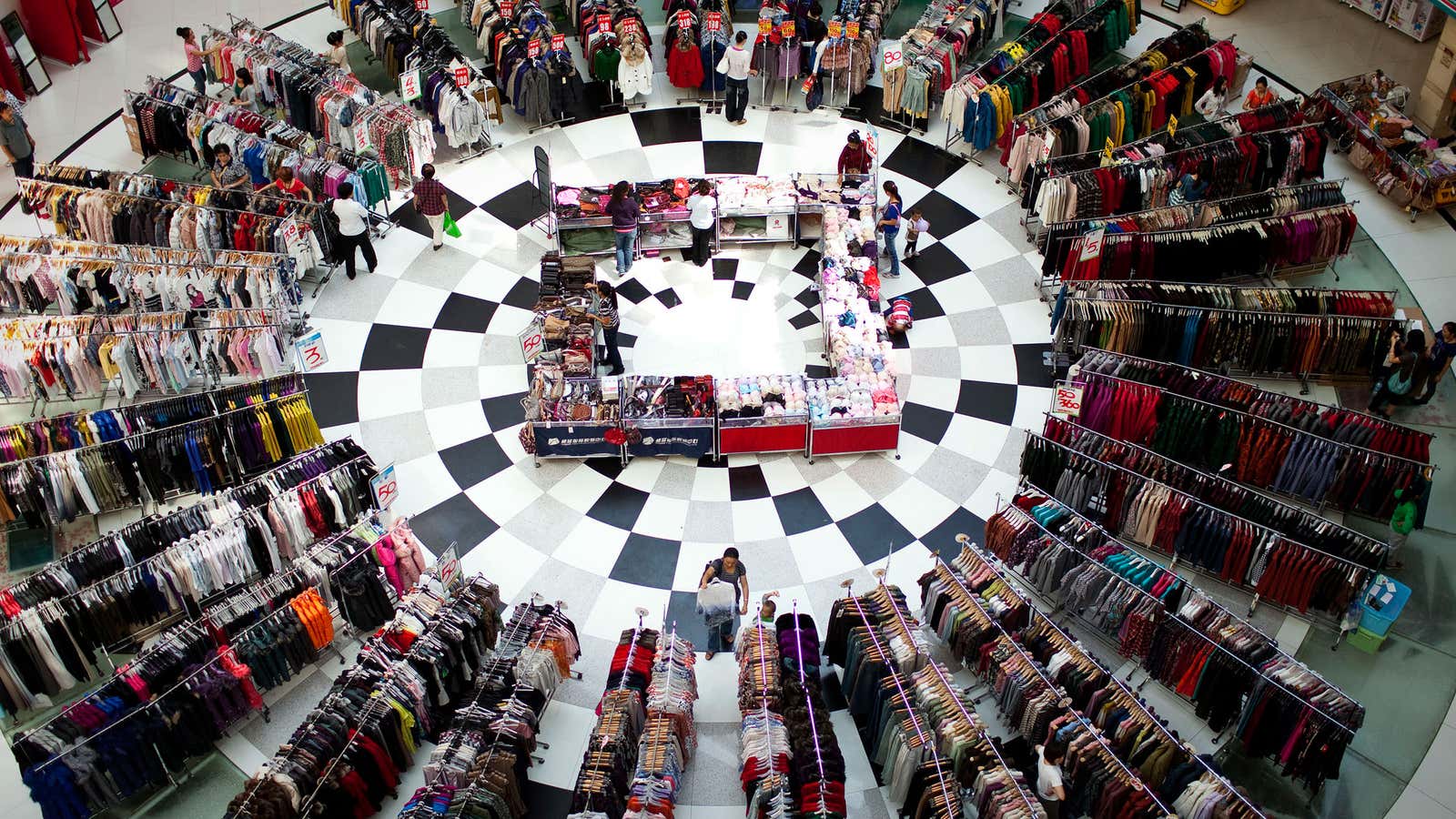Yes, China is still slowing down. No, we still don’t know exactly how badly. China’s GDP in the third quarter was up 7.4% from a year earlier, its slowest pace of expansion since the first quarter of 2009. This quarter’s performance was also slower than the second quarter’s 7.6% rise. But coming hot on the heels of better-than-expected industrial production and strong exports, this leaves plenty of scope for the usual heated discussion between bulls and bears on whether China’s economy is maturing and rebalancing toward a developed-world model, or hurtling towards disaster.
Most analysts who have commented so far about the latest GDP report seem to believe China is on the way to recovery. The Chinese government is injecting cash into the economy and the central bank has been acting to lower the yuan to support exports. This may only be a temporary solution, however. Regular yuan depreciation will anger US politicians who charge China with being a currency manipulator and seek embargoes on trade.And the long-term bearish view on China’s economy still stands. As Peking University finance professor Michael Pettis explains here, it is hard to ignore China’s huge bad debt problem, caused by inefficient economic stimulus lending and the activities of a huge, unregulated and opaque shadow banking system.
The Beijing government wants to move the economy away from relying on exports and state investment, toward domestic consumption. Yet Chinese people are notoriously thrifty and the coutry’s growing debt problem could make them more so. When China last bailed out its then-ailing banks in the late 1990s, it was households that paid in terms of receiving very low interest on their savings, Pettis explains. That encouraged them to save, not to buy new TVs or go on holiday.
It would be difficult for the government to bail out its banks, stimulate consumer spending and reduce infrastructure investment all at once. Beijing could carry out another massive fiscal stimulus, as it did in 2009-10. Many people expect that to happen in some form or other after the leadership transition that kicks off next month.
A stimulus could help the economy grow large enough to make the bad loans seem small. But it would also store up more banking bailouts for the future. China already has a surfeit of money-losing infrastructure and energy projects. Its program of intensive capital investment combined with subsidies seems to become less efficient the longer it lasts.
